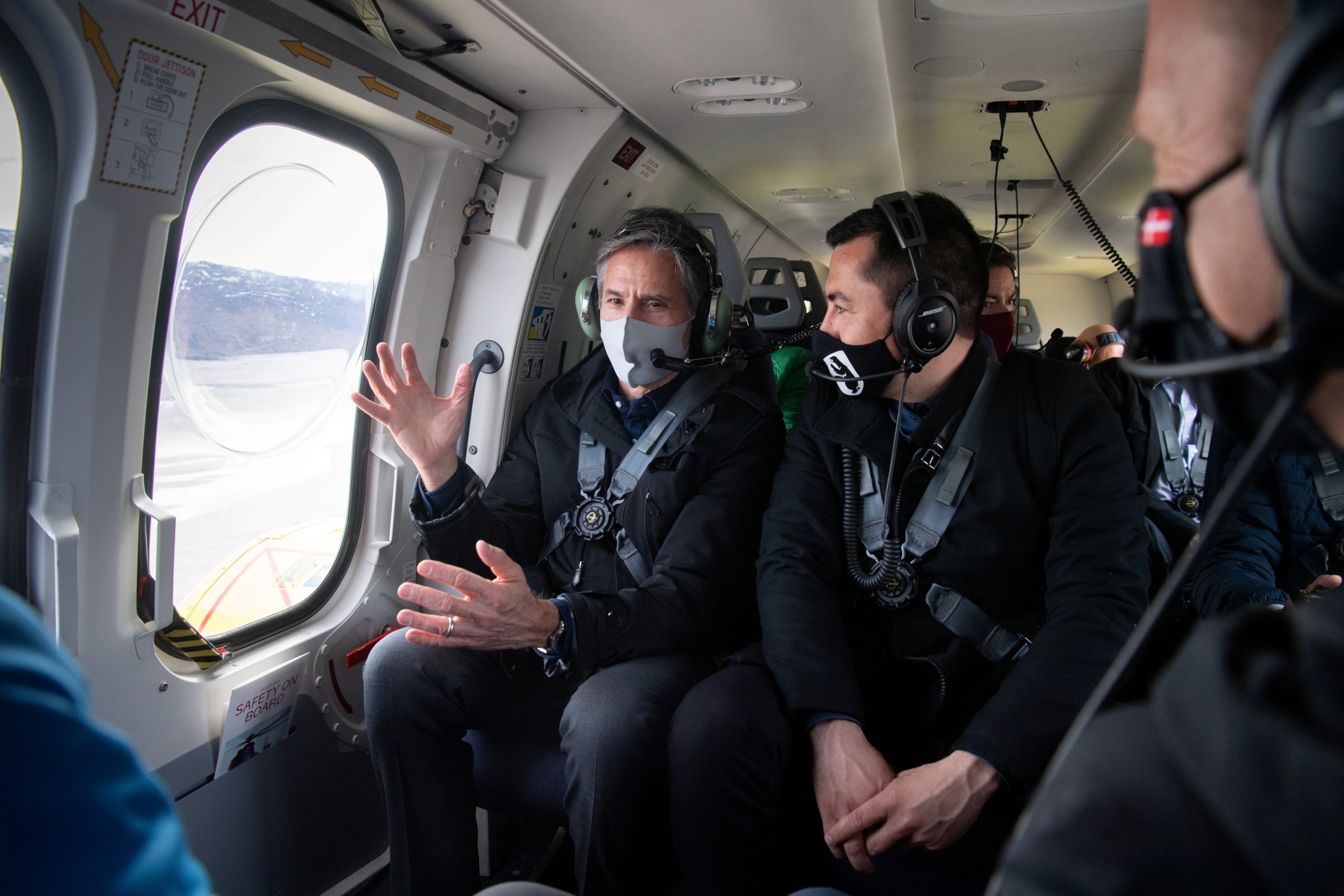Greenland premier takes on foreign policy portfolio ahead of Arctic talks with Danish PM
Múte B. Egede took the unusual step of taking on responsibility for foreign affairs after the previous minister was demoted for making controversial comments to a Danish newspaper.

Greenland Premier Múte B. Egede will in the coming days meet with his Danish counterpart, Mette Frederiksen, to finalize the details of an arrangement that will see Greenland given a larger say in Arctic foreign affairs, while also permitting it to pursue a foreign policy that diverges from the line set in Copenhagen.
Although in the works since June, the meeting comes after Egede on Tuesday took the unusual step of taking on the foreign policy remit himself. The decision to do so came amid a cabinet reshuffle the saw the demotion of the previous foreign minister, a leading member of Naleraq, a party in Egede’s coalition that favors a quick path to independence.
Pele Broberg remains in the cabinet as commerce and trade minister but was stripped of the foreign affairs and climate portfolios after making comments to a Danish news outlet questioning whether non-Inuit should be permitted to participate in a future vote on Greenland’s independence from Denmark.
[Denmark agrees to give Greenland front seat at Arctic table]
Broberg, who later said he felt the article misinterpreted his comments on the issue of the vote, also said he refused to use the official collective term for Denmark, Greenland and the Faroe Islands. Directly translated, the term means “commonwealth”, but Broberg said he took issue with Denmark’s practice of calling the trio “the Kingdom of Denmark” internationally.
“Denmark insists on using a term that has nothing to do with ‘community’ or ‘equality’,” Broberg said in a September 19 statement that also questioned Copenhagen’s motives for avoiding the word “country” when referring to Greenland, instead calling it a “territory” or a “part of the Kingdom of Denmark.”
Broberg’s complaints come despite an agreement struck during a meeting on June 10 involving Egede, Frederiksen and Bárður á Steig Nielsen, the Faroese premier, to give Greenland and the Faroe Islands what was described as more “elbow room” in foreign affairs relating specially to each country.
In addition, the agreement said Greenland could speak on behalf of the Kingdom of Denmark during meetings of the Arctic Council and sign official documents on its behalf.
[Greenland is high on the agenda as Denmark’s new foreign minister makes his first DC visit]
Although Denmark retains control over the foreign affairs and defense of entire Kingdom of Denmark, Greenland and the Faroe Islands, as self-governing countries, have the right to have independent relations with foreign powers, and both have diplomats stationed abroad. Those diplomats, however, may only discuss issues relating to powers that have been devolved to their countries. Moreover, meetings must be coordinated with Danish authorities and a representative from Copenhagen is permitted to sit in.
Before Copenhagen loosens the reins, representatives from the three countries must work out the details of a committee that will discuss foreign policy.
Addressing the opening meeting of the fall session of Inatsisartut, the national assembly, on Thursday, Egede said he considered the agreement a first step towards a distinct foreign policy for Greenland.
“When it comes to foreign policy issues, our options have been limited. The meeting on June 10 was a big step, but it is still one of our major goals to have Greenland involved to an even larger degree and for us to be able to act more independently abroad.”